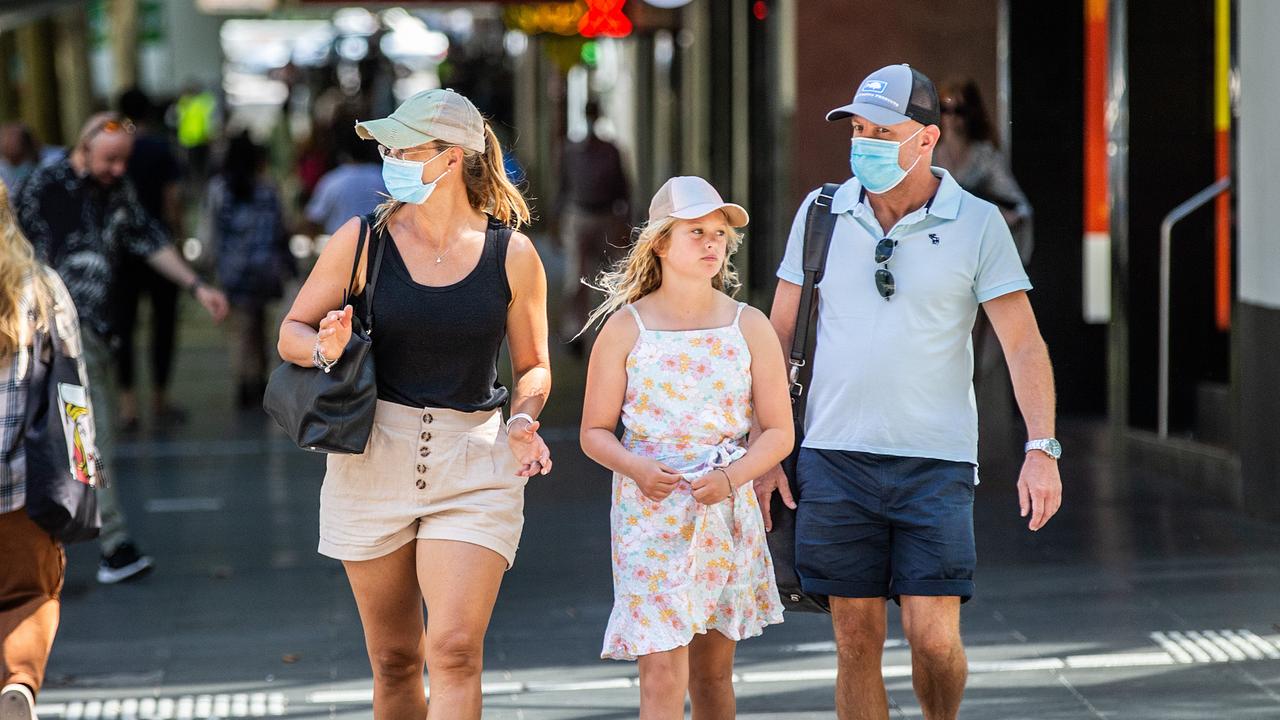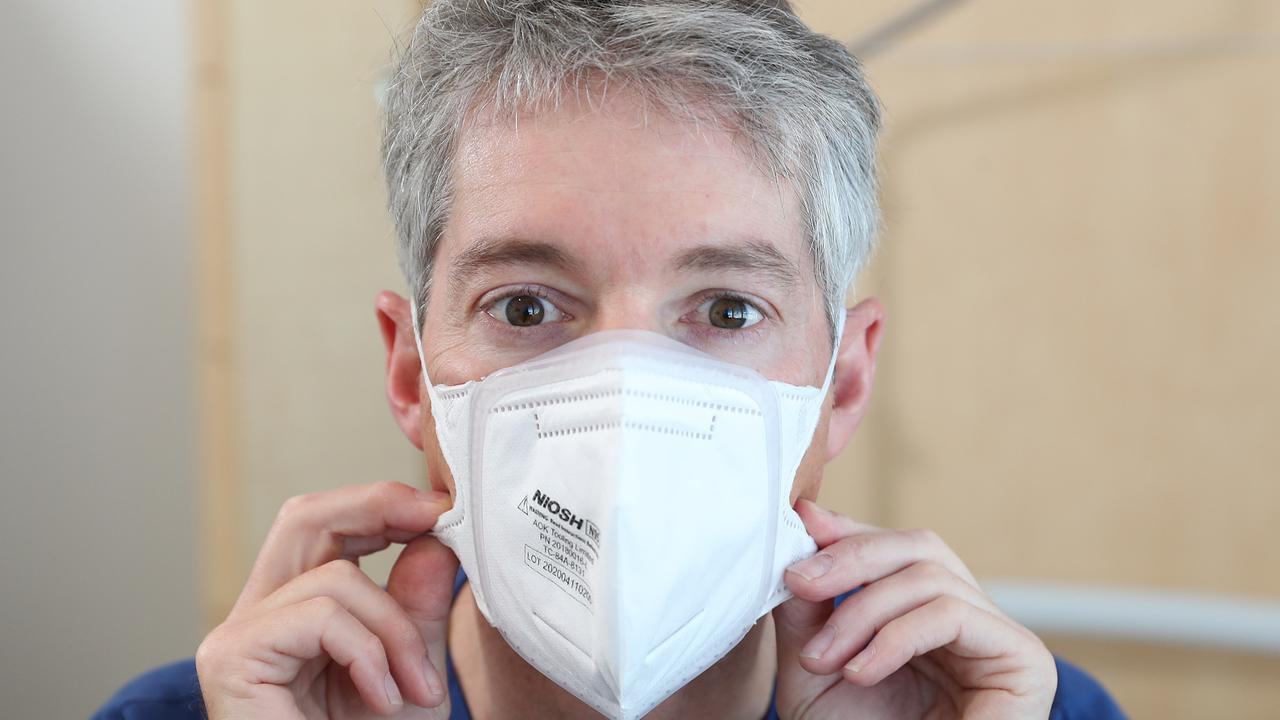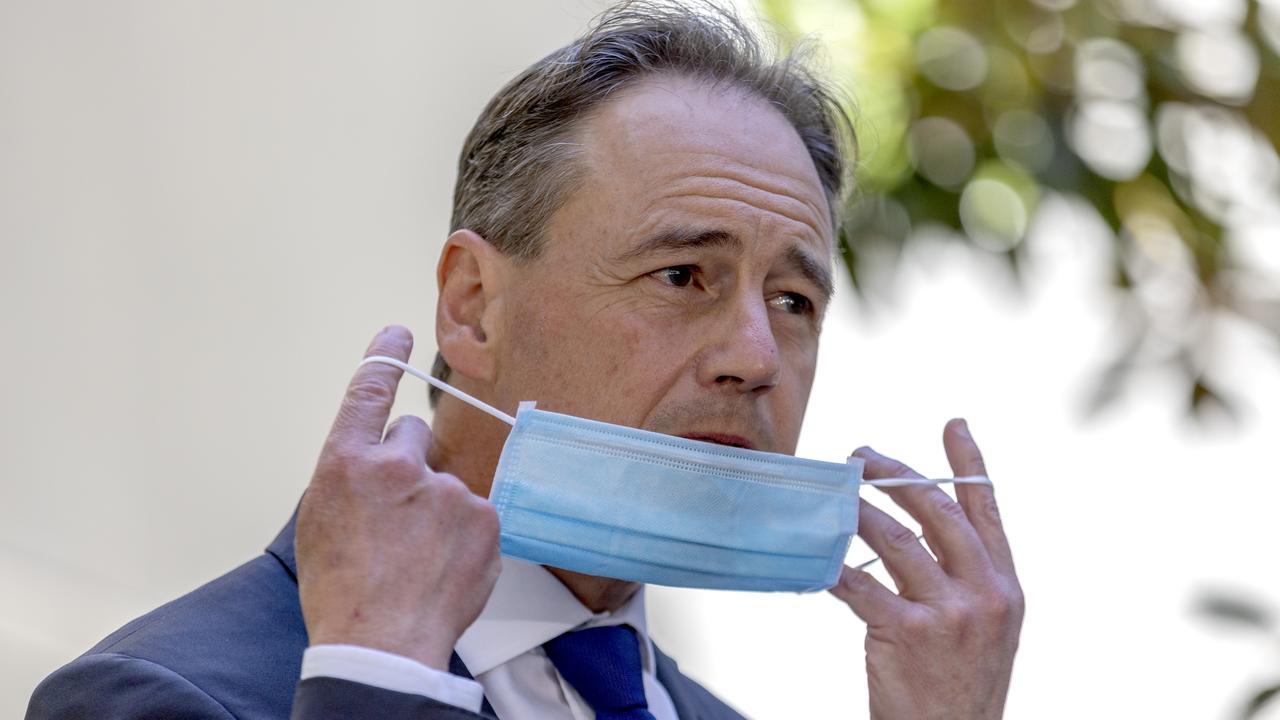Australia won’t recommend N95 masks for Omicron, despite huge US rollout, new studies
Australian officials will not recommend N95 masks as best to protect a wearer from Omicron, despite US advice and Australian studies declaring it to be true.
Australian officials have declared there’s “no evidence” to suggest moving towards using N95 filtering masks in daily use despite US advice that they provide better protection against Omicron.
The efficacy of N95 masks over surgical masks is well-known, with Australian studies suggesting that while surgical masks and fabric masks are at least 50 per cent effective at filtering virus particles, N95 masks are about 99 per cent effective.
But in contrast with the US advice, Australian officials speaking today at a press conference with Health Minister Greg Hunt said it wasn’t necessary to change the mask you are wearing for daily use.
Stream the latest news on Covid-19 with Flash. Stream more than 20 global & local news sources. New to Flash? Try 14 days free now >

“Only this week we have been further reviewing the recommendations we make to the community around masks,’’ Professor Alison McMillan, Commonwealth Chief Nursing and Midwifery Officer said.
“And there is no evidence to suggest that we should be moving towards … N95 respirators in the community setting.
“A double layered cloth mask or a surgical mask that is fitted over your nose, mouth and chin does provide protection, and remember a mask is only one part of this suite of things we do to prevent the spread.
“Stay home if you get symptoms. And physical distancing, good ventilation, good hand hygiene and all of those things continue.
“I am aware that there are some publications out there suggesting a move to N95 (masks). But that’s not supported in the empirical evidence, the evidence we would use to make recommendations around the use of masks.”
In the United States, US President Joe Biden recently announced plans to distribute 400 million free N95 masks in pharmacies.
Last week the US Centre for Disease Control and Prevention also updated its guidance on masks for the general public, suggesting that people “may choose” to wear N95 and KN95 masks because they offered the best protection against Covid-19.
The agency stopped short of endorsing one mask over another, however, stating that “CDC continues to recommend that you wear the most protective mask you can that fits well and that you will wear consistently.”

The new US advice states that “masks and respirators (i.e., specialised filtering masks such as “N95s”) can provide different levels of protection depending on the type of mask and how they are used.”
“Loosely woven cloth products provide the least protection, layered finely woven products offer more protection, well-fitting disposable surgical masks and KN95s offer even more protection, and well-fitting NIOSH-approved respirators (including N95s) offer the highest level of protection,’’ the advice states.
“A respirator has better filtration, and if worn properly the whole time it is in use, can provide a higher level of protection than a cloth or procedural mask. A mask or respirator will be less effective if it fits poorly or if you wear it improperly or take it off frequently.
“Individuals may consider the situation and other factors when choosing a mask or respirator that offers greater protection including:
– When caring for someone who is sick with COVID-19.
– If you are at increased risk for severe illness, for example, people who are immunocompromised, older adults, and people with certain underlying medical conditions.
– When working at a job where you interact with large numbers of the public, especially when not everyone is consistently wearing a mask. For example, bus drivers and grocery store workers.
– When riding on planes, buses, trains, or other forms of public transportation, especially if it is for a long period of time on crowded conveyances.
– When physical distancing is not possible or when you are in crowded indoor or outdoor public settings.
– If you are not up to date on COVID-19 vaccinations.

Health Minister Greg Hunt said today that he would continue to follow the expert advice on masks.
“There are those that have very strong views in favour of some or against other masks. And so our approach is pretty clear. We will just continue to follow that medical advice,’’ he said.
He also conceded there was no guarantee of supply when the “free” rapid antigen test plan for pensioners and low income earners is rolled out in chemists from next week.
”Whether it’s a pharmacy, in NSW or Victoria or Queensland or Western Australia or in any part of the country, it will depend on their particular supply. But it’s about having 66 million tests available over the course of the course of the coming months,” he said.




